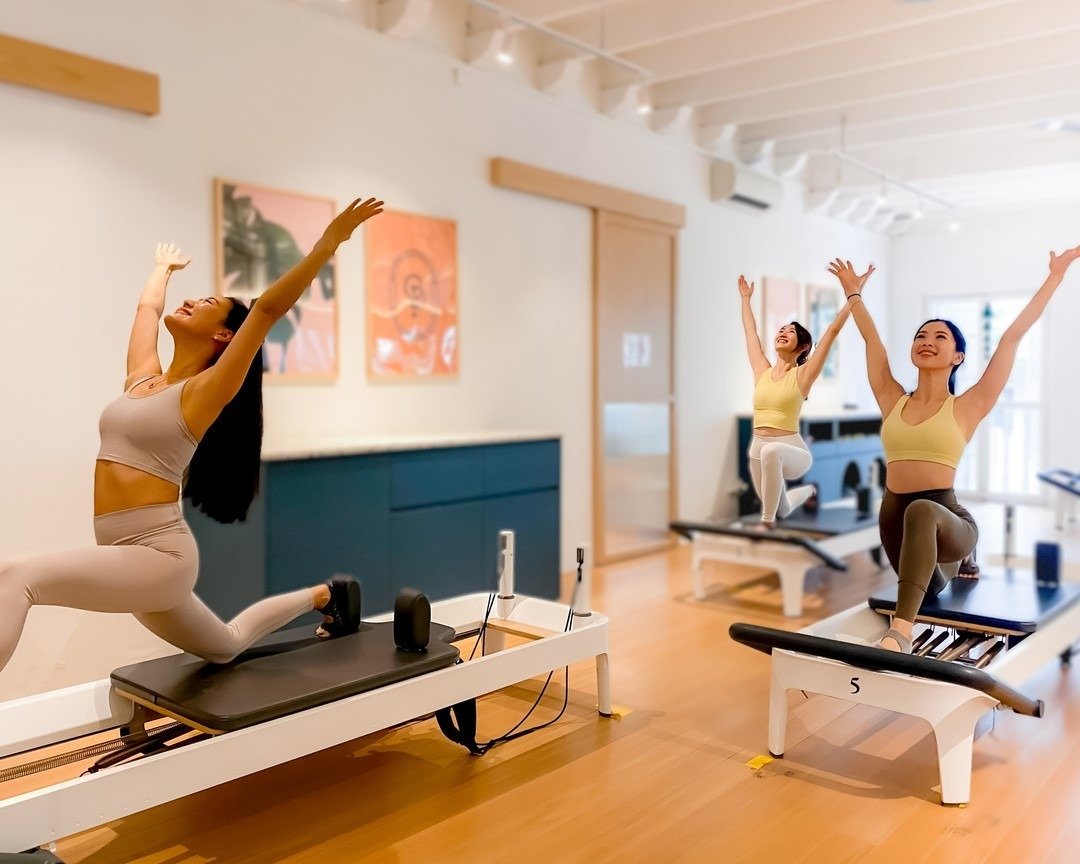How to open a fitness studio in Singapore
Tips from fitness entrepreneurs who have been there and done it
Text: Tiff H
Image source: BOOM Singapore
With the revenue of Singapore’s fitness industry projected to reach 39 million SGD in 2020 and an increasing prioritisation of health and exercise due to the Covid-19 pandemic across the island state, setting up a fitness studio may seem like the way to go. Staying fit and well is at the top of our mind, plus, who wouldn’t want to be their own boss?
Yet, setting up your own fitness business can be a scary prospect, especially if it’s your first time doing so, and even more so now that we’re battling coronavirus. With the already saturated fitness start-up scene in Singapore, there are a number of things to consider that go beyond the workout program you’ll be carrying out. In addition to the usual steps, studios need to be nimble and prepared for a variety of situations including the options to go virtual, adjusting workouts to be home-friendly and even renting out studio equipment.
For some real industry insight, The Soothe spoke to Victoria Martin-Tay, Co-Founder of Boom Singapore, as well as Lim Yao Peng, Lim Yao Xiang and The Chong Nyen, the Co-Founders of Grityard for some insights on setting up a fitness studio.
Define your fitness brand
First thing’s first, it’s important to identify what your studio will bring to the existing fitness scene during this extremely difficult time, and how it will set itself apart. According to Chong Nyen, fitness in Singapore has become a commodity and is no longer a luxury service, which has meant that there has been a huge influx in both demand and supply. In an already saturated market, it is therefore integral for your brand positioning to be clear and well-defined, both for yourself and your customers.
“Who are you as a brand? What do you stand for? Who will identify with you?” These are questions that Victoria asked herself when starting BOOM Singapore with her husband, Bryan Tay. “For us, running a fitness studio is way more about everything else aside from fitness. Of course, the fitness element is the cornerstone of our business, but in building a company and brand, the business aspect is sometimes equally — if not more — important.” Seeing themselves as being part of the service and hospitality industry, in addition to the fitness one, their operations reflects this emphasis on customer service and interpersonal skills, which is something that the brand is known for.
Image source: BOOM Singapore
Set realistic goals
Setting goals with a realistic timeline and milestone is essential for any business, and even more so in an industry as competitive as the fitness one. While pure passion may be enough to kickstart it, it’s important that you stay committed throughout the ups and downs. Yao Peng stresses how important it is to have a vision for the brand, while also pegging this vision to quantifiable achievements to track the business’ progress.
Victoria also highlights the importance of having a clear motivation for these goals: “People who rush into opening up something because they want to expand a hobby may not get very far. That does not necessarily mean you know exactly what you are going to do 5 –10 years down the line or how exactly your business plan is going to change, but you should at least consider what routes your business may end up taking. By doing so, you can have these at the back of your mind at every stage of running the business, evaluating where you are presently versus any of these future options and considering what you want to achieve, both personally and professional, through doing so.”
Build a strong team
People matter. It’s not enough to have a solid offering and a clear brand vision if there isn’t a team pushing behind it. “Finding the right people to represent the fitness brand has and will always be the hardest challenge of our business,” Victoria shares, “we may never find multiple people who check every single box, but it’s up to us to prioritise the qualities we want in our staff, understanding what has to be innate and non-negotiable off the bat, and what can be trained. Therefore, we have to be willing to put in the time and effort into training. You’re not going to find the perfect person, with the perfect personality, with the perfect skill set and with the perfect salary expectation. Something has got to give, otherwise, you may never hire anyone. We’re big on training, as we know our staff are worth the investment.”
Image source: Grityard
Value relationships
Beyond the transactional, it’s important to forge authentic relationships with customers and clients. “It was only after we started Grityard that I realised that we were actually in the business of building relationships and connections,” Yao Xiang reflects. Fitness is such a social activity and people end up coming to workout with us because they are connected to the gym's vision, the trainers, the friends they came with and the people they meet. It goes beyond the 45-minute class.”
Boom Singapore’s 2-Class Trial Pass (Valid for 1 Month) is priced at SGD 40. To learn more about Boom, visit www.boomsingapore.com, or follow their Instagram or Facebook.
Grityard’s one-week unlimited trial is priced at SGD 35. To learn more about Grityard, visit www.grityard.com, or follow their Instagram or Facebook.













